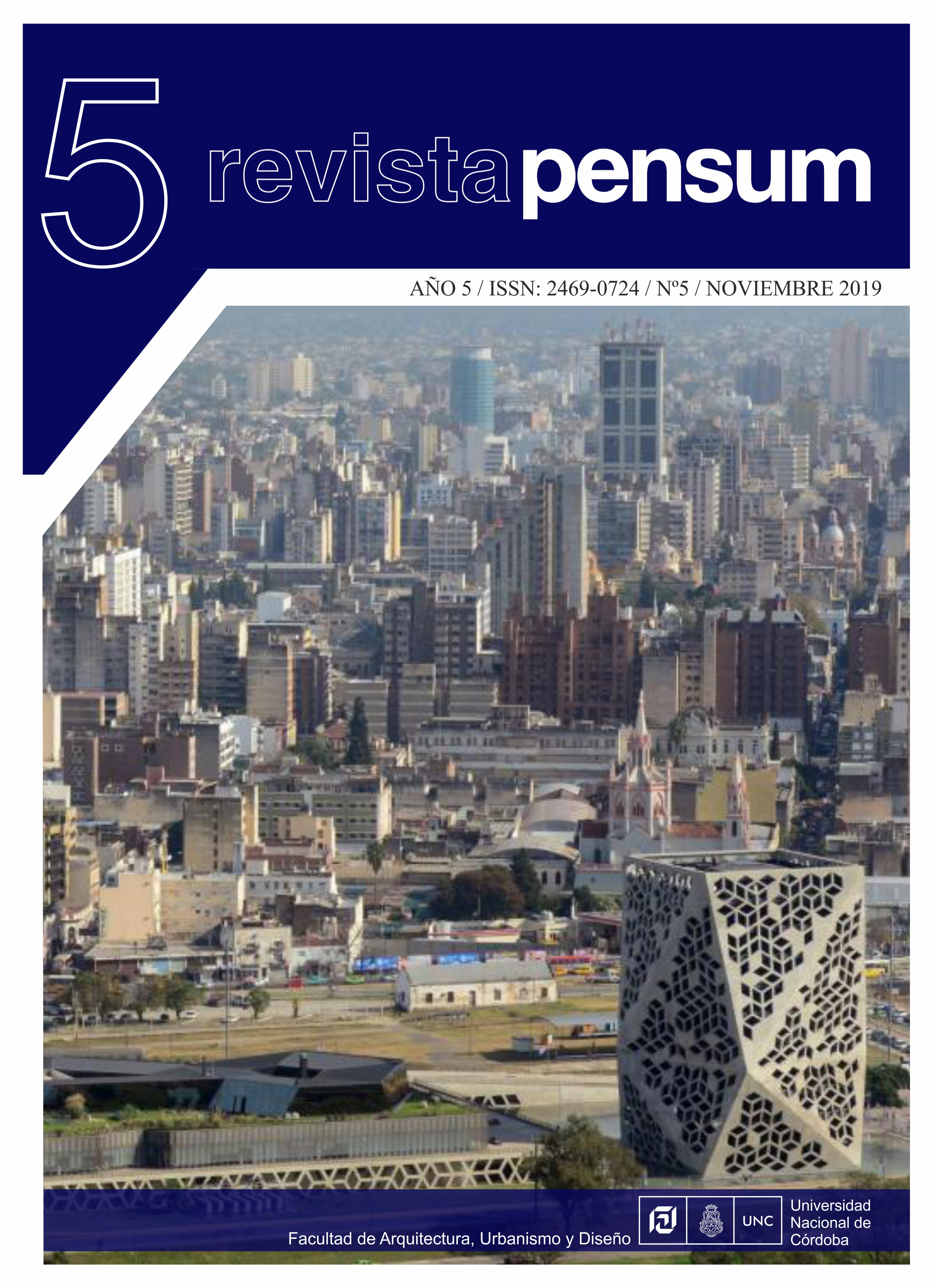Neoliberal governance: a critical review of villas policy (2015 - 2018)
DOI:
https://doi.org/10.59047/2469.0724.v5.n5.26298Keywords:
Public policies, settlements upgrade, governance, neoliberalism, Buenos Aires cityAbstract
In this paper we reflect on the different modalities of intervention deployed in settlements upgrade policy by the Government in Buenos Aires city between 2015 and 2018. Specifically, it focuses on the experience of the Secretaría de Inclusión social y Urbana and the Instituto de la Vivienda de la Ciudad. The first of that bureaucracies are taking part of the upgrade process of Villa 31-31 bis, the second one of the Villa 20 process, which are the two experiences chosen in the analysis. Both agencies have differences regarding their origin, trajectory, capacities and intervention criteria of upgrade policies, aspects that are reflected in the forms of management that are deployed in the territory. Participation is a transverse axis that shows differences in process and product, within a context of neoliberal governance. The research is based in a qualitative methodology, which combines interview methods, documentary analysis and observations in the different dependencies and the territory. The analysis evidences the complexities that shows de settlements upgrade policy and contributes to the understanding of the new styles of neoliberal governance.
References
Arqueros Mejica, M.S. (2018). La política de desarrollo de la comuna 8 de la ciudad de Buenos Aires (1996-2015). Tesis para acceder al título de Doctora en Ciencias Sociales. Facultad de Ciencias Sociales, Universidad de Buenos Aires.
Arqueros Mejica, M. S.; Rodríguez, M. C.; Rodríguez, M. F.; Zapata, M. C. (2018). La planificación ‘pasito a pasito’: al son de las políticas dirigidas a villas de localización central en la ciudad de Buenos Aires (Argentina). Ponencia presentada en el Seminario Latinoamericano Teoría y política sobre asentamientos populares. Los Polvorines, 19-20 de abril de 2018.
Bertranou, J. (2013). Capacidad estatal. Aportes al debate conceptual. Ponencia presentada en el 7º Congreso Argentino de Administración Pública, Mendoza, 18-20 de septiembre.
Brikman, D. (2016). ¿Gestión social de Hábitat? La política del PRO en las Villas de CABA, 2011-2015. Revista Quid 16, 6, pp. 1-26.
Castellani, A. (2018). Lobbies y puertas giratorias. Los riesgos de la captura de la decisión pública. Nueva Sociedad, [276], pp. 48-61.
Cravino, C. (2006). Las villas de la ciudad. Mercado e informalidad urbana. Buenos Aires: UNGS.
Gené, M. (2011). En torno a los profesionales de la política. Trayectorias, prácticas y destrezas en el ejercicio del poder político desde el Estado. Revista Perspectivas de Políticas Públicas, 1[1], pp. 85-107.
Oszlak, O. (2006). Burocracia estatal: política y políticas públicas. Revista POSTdata, [11], pp. 11-56.
Oszlak, O. y O’donnell, G. (2008 [1976]). Estado y políticas estatales en América Latina: hacia una estrategia de investigación. En Acuña, C. (comp.), Lecturas sobre el Estado y las políticas públicas: retomando el debate de ayer para fortalecer el actual. Buenos Aires: Jefatura de Gabinete de Ministros de la Nación.
Pírez, P. (2015). La urbanización en América Latina: Las heterogeneidades en su producción y resultados. Ponencia presentada en I Congreso Latinoamericano de Teoría Social. Buenos Aires. Argentina. Agosto de 2015.
Portes, A. (1999). La economía informal y sus paradojas. En: Carpio J., Klein E. e Novacovsky I. (Eds.). Informalidad y exclusión social. Buenos Aires: SIEMPRO/OIT/Fondo de Cultura Económica de Argentina.
Rodríguez, M. C. (2018). Políticas de hábitat, villas y ciudad. Tendencias actuales y futuros posibles (Buenos Aires, Argentina). Oculum ensaios, 15[3], pp. 495-517.
Springer, S. (2015) Postneoliberalism?. Review of Radical Political Economics, 47[1], pp. 5-17.
Theodore, N., Peck, J., Brenner, N. (2009). Urbanismo neoliberal: la ciudad y el imperio de los mercados. Temas Sociales, [66], pp. 1-12.
Downloads
Published
Issue
Section
License

This work is licensed under a Creative Commons Attribution-ShareAlike 4.0 International License.
Authors who publish in this journal agree to the following terms:
a. Authors retain copyright and guarantee to the journal the right to be the first publication of the work as well as licensed under a Creative Commons Attribution-ShareAlike 4 license.
b. Authors may separately establish additional agreements for non-exclusive distribution of the version of the work published in the journal (e.g., placing it in an institutional repository or publishing it in a book), with an acknowledgement of its initial publication in this journal.
c. Authors are permitted and encouraged to disseminate their work electronically (e.g., in institutional repositories or on their own website) before and during the submission process, as this may result in productive exchanges, as well as earlier and greater citation of published work (See The Effect of Open Access).
d. 4.0 International Creative Commons Attribution-ShareAlike 4.0 License.












